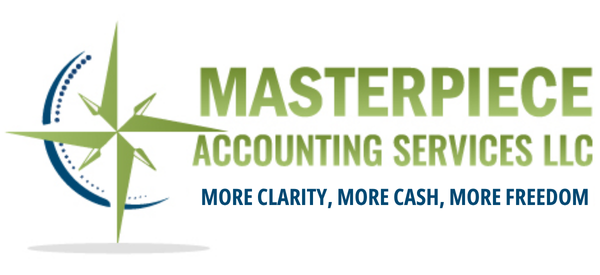During the first Super Bowl that Tom Brady won (with the Patriots), these were some of the companies who advertised (hat tip to Jon Erlichman of Bloomberg):
AOL
Blockbuster
Radio Shack
Circuit City
CompUSA
Sears
HotJobs
Yahoo
VoiceStream Wireless
Gateway Computers
The year was 2002, and life looked a little different, eh? BUSINESS looked different. Over the past few years, we’ve all had to adjust to some things.
It’s a large part of my job to work with business owners by “picking up the pieces” of their finances, and unfortunately, it’s often too late to have done any good.
Of course, we work with plenty of thriving businesses by helping them spot hidden opportunities buried within a mess of data.
That’s because every day my staff and I swim in an ocean of numbers, and we’ve become pretty quick about knowing what’s happening in a business by seeing where the “currents” are leading (if you will).
But often we’re stuck looking historically instead of real-time, because too many business owners don’t have a system in place for getting those numbers to us quickly. But when they do, we can very quickly know how to help.
Some numbers don’t necessarily show up on balance sheets — and they’re perhaps even more important than what you see on a P/L statement …
Measuring Key Numbers In Your Business And Developing Accountability
“You have been blessed with a mind that can direct your actions in any way that you choose.” -Ramon Luis
It’s easy to get lazy when a business can pick the low hanging fruit available in an easy marketplace.
But, that’s not always the case, is it?
Markets shrink, funding dries up, prospects aren’t as easily found, or profitability margins decrease. So what do you do? Many business owners don’t know how to tweak their marketing and sales systems, so they can track the numbers at each step in the sales process and grow in new directions.
I have seen (in several industries) that the businesses who create a culture of accountability, have weekly sales meetings, track their numbers, and hold team members accountable, are successful … while those that guess and “assume” are usually out of business. It’s just a matter of time.
The key is knowing the numbers — what is the average expected result, and how you are measuring up against that result for each step in the process. This is where accountability starts.
But many people don’t want to track the numbers, because they might have to admit that they aren’t doing their job and letting their teammates down. Others simply do not have the systems or do not understand how to track those numbers or understand the benchmarks of the average business, the good business — and the great business.
Many self-employed business owners just feel what they are doing is “working” without having tested it or tracking where they are at. Sadly, this reflects a naivete that will eventually bite you in the rear end.
Unless you have completed valid measurements and received statistically reliable results, you don’t have any idea whether you are improving or going backwards.
Especially in a crazy lockdown economy, it’s important to get ahead of the curve and not rely on lazy systems for your business.
So, here is the cold, hard truth: if you don’t know how to test scientifically — or if you do know but you think it’s not necessary — your business is on the slow road towards oblivion.
Here are the sort of things you should be watching…
If you want to develop business mastery, it starts with expertise in direct marketing and sales. And that means establishing the ability to measure the following factors and develop accountability around them:
- Statistically valid testing at each stage of the sales process
- Structuring price, term, refund, and premium tests for profit — and what works
- Determining the true lifetime value of every new customer
- Calculating “allowable acquisition costs” (what you can spend to get a customer)
- Measuring responsiveness by advertising source
- Identifying the “doubling date” or “half-life” of a new offer or customer
- When is the right time to purge unproductive prospects and staff
- How do you identify opportunities for multiple streams of revenue within your business (the numbers should tell you)
If you don’t have the ability to measure these areas in your business — or if your key people cannot — consider your business to be in trouble.
That being said, these are the sorts of conversations we love to have with you. We’d love to be a resource, and to help you see the opportunities — and the traps — within your business.
We’re here to help.
I’m grateful for our partnership and for your referrals.
Warmly,
Ibanessa S Hogan
914-752-3632
Masterpiece Accounting Services

